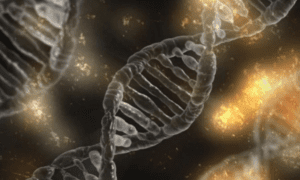Have you ever wondered if AI truly revolutionizes marketing and creative industries? While AI enhances data analysis and automates processes, it’s crucial to assess its actual impact. AI undoubtedly boosts efficiency and personalization, but can it fully replace human creativity and strategic thinking? Exploring AI’s role in these fields requires reflecting on its potential and limitations. The future will likely hinge on finding the right balance between AI and human ingenuity.
AI in Marketing
AI’s integration into marketing, especially AI in advertising, has transformed how businesses connect with customers and optimize strategies. With AI-powered tools, you can analyze vast amounts of data to create highly targeted segments and deliver personalized content that resonates with individuals. This approach improves engagement and drives higher conversion rates. Additionally, AI automates various aspects of marketing, from ad optimization to social media scheduling, saving time and ensuring data-driven decisions.
Predictive analytics powered by AI helps you anticipate trends and consumer behavior, allowing you to stay ahead and make informed choices. Leveraging AI provides a competitive edge in today’s digital landscape, strengthening customer relationships. In a data-driven world, incorporating AI into your marketing strategy is no longer optional—it’s essential for achieving growth and success.
AI in Creative Industries
AI is not just transforming marketing; it’s also reshaping creative industries. AI-powered tools are revolutionizing content creation, design, and video editing. AI storytelling can generate engaging narratives, while generative art and music composition tools help create unique visual and auditory experiences. Personalized content tailored to individual preferences is easier to produce. Key areas where AI is making a significant impact include:
- Visual effects: Automating complex tasks to generate realistic animations and improve post-production efficiency.
- Design and illustration: Assisting with generating design ideas and automating repetitive tasks, freeing you to focus on creativity.
- Video editing: Streamlining the editing process, speeding up turnaround times, and improving workflow efficiency.
As AI evolves, it will unlock more possibilities for creative professionals, enabling you to push boundaries and deliver data-driven solutions that resonate with your audience.
Addressing Ethical Concerns
While AI offers immense potential, it raises critical ethical concerns that need to be addressed thoughtfully. Understanding and mitigating these risks is key to ensuring responsible AI usage in marketing and creativity.
AI Bias
One of the most significant challenges is AI bias. AI algorithms, trained on historical data, can perpetuate biases present in that data. This can lead to discriminatory outcomes, especially in targeted advertising or content recommendations, where certain groups may be unfairly prioritized or excluded. For example, AI might reinforce stereotypes or limit opportunities for specific demographics.
To combat this, organizations should use diverse, representative datasets and regularly audit AI systems to identify and address bias. Building transparency into AI decision-making processes will also help mitigate these risks.
Data Privacy and Security
AI relies heavily on vast amounts of personal data to deliver personalized experiences, which presents inherent risks. Collecting, storing, and analyzing this data increases the potential for breaches and misuse. AI can also be misused for malicious purposes, such as deepfakes or cyberattacks.
Organizations must implement robust security measures, including encryption and access controls, to protect user data. Additionally, adopting privacy-first AI models and being transparent with consumers about data collection practices can help build trust and ensure compliance with data protection regulations.
Job Displacement
As AI automates various tasks, job displacement becomes a concern. Many routine tasks in marketing (e.g., ad placement, data analysis) and creative fields (e.g., design automation) are increasingly handled by AI. This may lead to job losses in certain sectors.
However, AI also creates new job opportunities, such as roles in AI ethics, data science, and AI system design. Retraining and upskilling employees will be essential to help them transition into new roles that involve managing, interpreting, or overseeing AI systems. Preparing for this shift will be crucial for a smoother transition in the job market.
Future Predictions for AI in Marketing and Creativity
AI is poised to reshape both marketing and creativity in profound ways. Here’s a look at some potential developments on the horizon.
AI-Generated Content
AI’s ability to generate high-quality content—from articles and blog posts to entire scripts and videos—is rapidly advancing. This technology allows businesses to produce more content at a faster pace. However, ethical questions arise regarding originality, plagiarism, and copyright infringement. Can AI “own” its creations, or should rights belong to the developers who programmed it?
Businesses must consider how AI-generated content fits into their brand messaging. While AI can handle content creation, human oversight will remain crucial to ensure authenticity, creativity, and originality.
AI-Powered Personalization
As AI advances, hyper-personalization will take center stage. AI systems will craft customized product recommendations, content suggestions, and dynamic websites that adapt to individual users’ preferences.
While personalization improves customer experiences, it can also raise privacy concerns. Over-personalization, where AI predicts user desires too closely, can make customers uncomfortable. Striking the right balance between personalization and privacy will be crucial to building and maintaining consumer trust.
AI and Sustainability
AI is increasingly being seen as a tool to address environmental challenges. It can optimize energy consumption, predict and manage waste, and help companies reduce their environmental footprints. In marketing, AI can optimize supply chains, reducing waste in production and distribution processes.
However, AI-driven sustainability efforts come with their ethical challenges. For instance, AI automation in logistics might inadvertently increase energy usage in other areas. Thoughtful consideration must be given to the broader impact of AI initiatives to ensure they are effective and sustainable.
The Future of AI in Marketing and Creativity
The future of AI in marketing and creativity is full of opportunities for innovation and growth. As AI technology advances, expect more sophisticated personalization strategies that deeply understand consumer behavior. Predictive analytics will allow you to anticipate customer needs and deliver hyper-targeted content. However, as AI usage grows, it’s vital to navigate ethical concerns around data privacy and transparency.
AI will become essential for tasks ranging from content ideation to execution. Advanced natural language processing will help craft compelling copy, while AI design tools will simplify visual content production. By leveraging AI to analyze data, you’ll continuously optimize your marketing for maximum impact. However, while AI will be crucial to staying competitive, human creativity and strategic thinking must remain at the core of your efforts.
Conclusion
AI is undeniably transforming marketing and creative industries, offering new ways to analyze data, personalize content, and automate processes. Its true power, however, lies in complementing human ingenuity, not replacing it. By addressing ethical concerns such as bias, privacy, and job displacement, and embracing future possibilities—like AI-generated content and AI-driven sustainability—businesses can harness AI’s full potential responsibly. Success will depend on finding the right balance, ensuring that AI enhances creativity while maintaining the essential human touch.
Read More From Techbullion



































